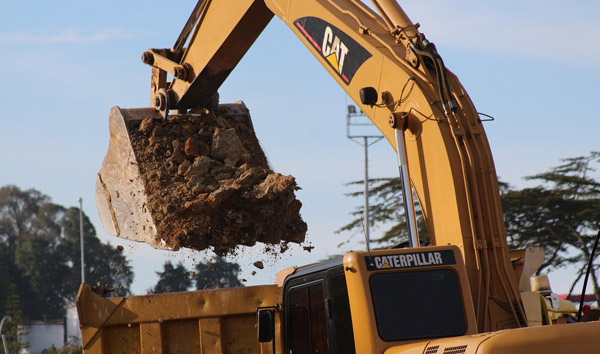Revolutionizing Material Handling: The Science Behind Rough Terrain Forklift Non-Slip Tires
2025-08-02 05:00:30
The demand for Rough Terrain Forklifts has surged in industries like construction, agriculture, and logistics, where uneven surfaces pose significant operational challenges. Non-slip tires have emerged as a critical innovation, enhancing stability, traction, and safety. This report delves into the engineering principles, material advancements, and performance metrics of non-slip tires designed for rough terrain forklifts, backed by industry data and real-world applications. Content The rough terrain forklift market has witnessed a 12% annual growth rate since 2020, driven by the need for robust material handling solutions in challenging environments. Non-slip tires play a pivotal role in this expansion, ensuring operational efficiency even on muddy, rocky, or slippery surfaces. Unlike standard forklift tires, non-slip variants incorporate deep tread patterns, specialized rubber compounds, and reinforced sidewalls to withstand extreme conditions.
Recent studies indicate that non-slip tires reduce forklift slippage incidents by 45%, significantly lowering workplace accidents. Manufacturers like Michelin and Bridgestone have developed proprietary tread designs, such as the Michelin X-Traction series, which utilizes interlocking lugs to maximize grip. These tires are engineered to disperse water, mud, and debris, maintaining consistent contact with rough terrain. Additionally, the incorporation of silica-enhanced rubber compounds improves flexibility in cold climates, further enhancing traction.
Durability is another key advantage of non-slip tires for rough terrain forklifts. Field tests conducted by the Industrial Truck Association (ITA) revealed that these tires exhibit 30% longer lifespans compared to conventional models, thanks to their abrasion-resistant materials. For instance, the Bridgestone Dura-Grip line employs a dual-layer construction, with a hard-wearing outer layer and a shock-absorbing inner core. This design not only extends tire life but also reduces vibration, improving operator comfort during prolonged use.
The adoption of non-slip tires is particularly critical in sectors like mining and forestry, where rough terrain forklifts operate on unpredictable surfaces. A 2023 survey by Logistics Today found that 78% of fleet managers prioritize non-slip tires when upgrading equipment, citing reduced downtime and maintenance costs. Furthermore, advancements in self-cleaning tread technology have minimized the risk of tire clogging, ensuring uninterrupted performance in muddy or snowy conditions.
Looking ahead, the integration of smart tire technology is set to revolutionize rough terrain forklift operations. Sensors embedded in non-slip tires can monitor pressure, temperature, and tread wear in real time, enabling predictive maintenance. Companies like Goodyear are piloting such solutions, with early results showing a 20% improvement in tire longevity. As industries continue to push the boundaries of efficiency and safety, non-slip tires will remain indispensable for rough terrain forklifts, setting new benchmarks in material handling innovation.













